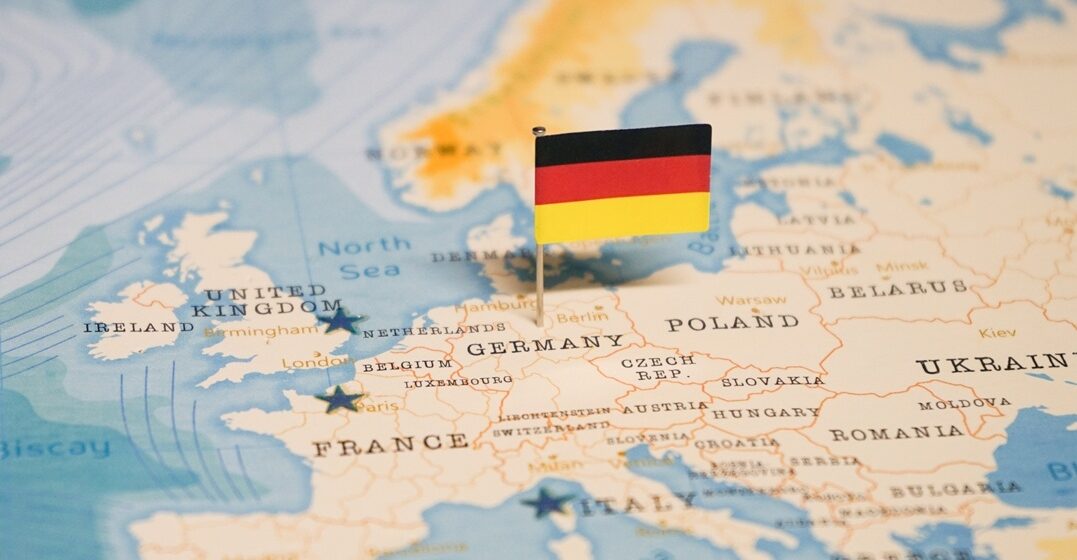How to say ‘I love you’ in German
Love sounds different in every language, and German is no exception.

In fact, the German language has many ways to express what the heart feels, whether it be romantic passion or platonic warmth. So, learning how to say “I love you” in German isn’t about memorizing a single phrase. It’s a whole journey — one that shines a light on the honest, subtle and layered ways in which Germans express affection.
The most common way to say “I love you” in German is also the most direct: Ich liebe dich. But just like in English, you wouldn’t use this one phrase for every kind of love. Germans have plenty of other expressions for tenderness, fondness or everyday affection — each with its own shade of meaning. Let’s explore how love sounds in German!
- Why learning to say “I love you” in German matters
- The classic phrase: Ich liebe dich
- Softer or casual alternatives
- Romantic expressions beyond “I love you”
- Sweet German nicknames and pet names
- How to say “I love you” in German: Quick guide
- FAQs
Why learning to say ‘I love you’ in German matters
In German, words of love carry weight. While many cultures casually sprinkle “I love you” throughout everyday conversations, Germans tend to reserve it for specific moments.
This doesn’t mean Germans are cold or unromantic. It just means affection tends to show up in actions rather than declarations. A German, for example, might demonstrate love by sharing an intimate meal, taking the time to fix a partner’s flat tire or simply showing up when it matters. When a German says “Ich liebe dich,” it’s backed by honesty rather than rote habit.
For language learners, understanding this mindset can help bring out the phrase’s underlying emotional energy. Remember that language and emotion grow together, and fluency requires empathy just as much as grammar!
With Lingoda, you don’t just memorize phrases in German. You learn how to use them naturally, with the cultural confidence that makes your words as real as the feelings behind them.

Learn German with Lingoda
How it works

The classic phrase: ‘Ich liebe dich’
Meaning and usage
When people ask how to say “I love you” in German, the answer is simple: Ich liebe dich. This German phrase literally means “I love you,” though it carries a deeper sense of commitment. You might say it to a partner, spouse or close family member. It’s probably not advisable to whip it out on a first date or toss it around as a casual compliment.
Because Germans tend to be careful with emotionally charged words, a proclamation of “Ich liebe dich” signals something serious. So, it makes sense that it’s typically reserved for when feelings are big and lasting.
Similar alternatives
Once the feeling is mutual, there are a few heartfelt variations you might hear:
- Ich liebe dich über alles (I love you more than anything)
- Ich liebe dich auch (I love you, too)
- Ich liebe dich so sehr (I love you so much)
Softer or casual alternatives
Not every kind of love calls for Ich liebe dich. Affection often sounds softer, friendlier or playfully understated. Here are a few ways to express the warmth without the heaviness.
‘Ich hab’ dich lieb’
Literally, I have love for you. This phrase is certainly affectionate, but its tone is lighter than that of Ich liebe dich. You may hear it said between close friends, from a parent to a child, or in the early stages of a romantic relationship, when emotions are genuine but not epic.
‘Ich mag dich’ (I like you)
Simple, honest and easy to use, Ich mag dich fits early dating stages or platonic affection. It roughly translates to “I really like you” — friendly, sure, maybe even flirty, but not too much.
‘Du gefällst mir’ (I find you attractive)
This one is both confident and flirty. It literally means “You please me” or “I like how you are.” Use it to compliment someone’s looks, personality or general vibe. It could be a winning conversation starter on one of the many German dating websites.
Romantic expressions beyond ‘I love you’
Sometimes, German love goes beyond Ich liebe dich. Different shades of phrases (from tender to poetic) can help you sound natural when emotions run deeper.
‘Du bist mein Ein und Alles’ (You are my everything)
This phrase expresses total devotion and is thus typically used in serious, long-term relationships. Obviously, it’s not suitable for casual flirting.
‘Ich bin in dich verliebt’ (I’m in love with you)
This one is sweet and sincere, but a bit more formal than its English twin. You’d use it for confessing feelings in a new relationship in a way that’s romantic but nevertheless grounded.
‘Du machst mich glücklich’ (You make me happy)
Simple and genuine, this everyday phrase helps couples show appreciation without much drama.
‘Für immer dein/e’ (Forever yours)
This one has a Pride & Prejudice kind of beauty to it. In other words, it’s old-fashioned, poetic and rarely heard these days. If you do come across it, it will likely be written in a love letter or exclaimed in a wedding vow.
Sweet German nicknames and pet names
Common terms of endearment
German couples love nicknames. Some sweet, some funny, all affectionate. You’ll often hear Schatz (darling), Liebling (favorite), Hasi or Hase (bunny), Maus or Mausi (mouse), even Bärchen (little bear). These might sound unusual to non-Germans, but they’re used daily, even in public. It’s part of what makes German affection charmingly down-to-earth.
In German, affectionate names signal closeness. Once someone calls you Schatz, congrats! You’re part of their inner circle.
How Germans express love non-verbally
Love in Germany isn’t always declared aloud, but it does show up in quiet gestures, small favors, shared jokes and consistency. Germans usually express care through their actions, which is why you may need to read between the lines when a German brings you a treat or offers to fix something for you. Their’s is a quieter kind of romance, built on reliability rather than constant reassurance. It’s not everyone’s cup of tea, sure, but at least it’s honest and pure.
How to say ‘I love you’ in German: Quick guide
| German | English |
| Ich liebe dich | I love you |
| Ich liebe dich über alles | I love you more than anything |
| Ich liebe dich auch | I love you, too |
| Ich liebe dich so sehr | I love you so much |
| Ich hab’ dich lieb | I care for you |
| Ich mag dich | I like you |
| Du gefällst mir | I find you attractive |
| Ich bin in dich verliebt | I’m in love with you |
| Du machst mich glücklich | You make me happy |
| Für immer dein/e | Forever yours |
What’s the difference between ‘Ich liebe dich’ and ‘Ich hab’ dich lieb’?
Ich liebe dich is deep-rooted and romantic, so it’s typically reserved for partners or close family. Ich hab’ dich lieb is softer and friendly, so it’s more often used among relatives, friends or in the early stages of a romantic relationship.
How do you say ‘I miss you’ in German?
“I miss you” has more or less a direct translation in German: Ich vermisse dich. It’s direct, heartfelt and appropriate for both romantic and platonic connections.
Love sounds better in German
To say “Ich liebe dich” is to step into a culture where love feels sincere, grounded and real. German doesn’t exaggerate emotion, but it does refine it. Every affectionate German phrase — from Ich hab’ dich lieb to Du machst mich glücklich — carries shades of care and warmth that show love is as much about what you say as how you say it.
When you learn how to express affection in another language, you gain some vocabulary, sure. But you also gain a new perspective and begin to understand how people connect, reassure and show tenderness in their own way across different cultures. So, whether you’re whispering “Ich liebe dich” or sending a text to your Schatz, you’re speaking the language of connection.
And if you’re ready to sound as authentic as you feel, Lingoda is your place to start. Real teachers, real conversations and real emotion in German.

Learn German with Lingoda
How it works

















